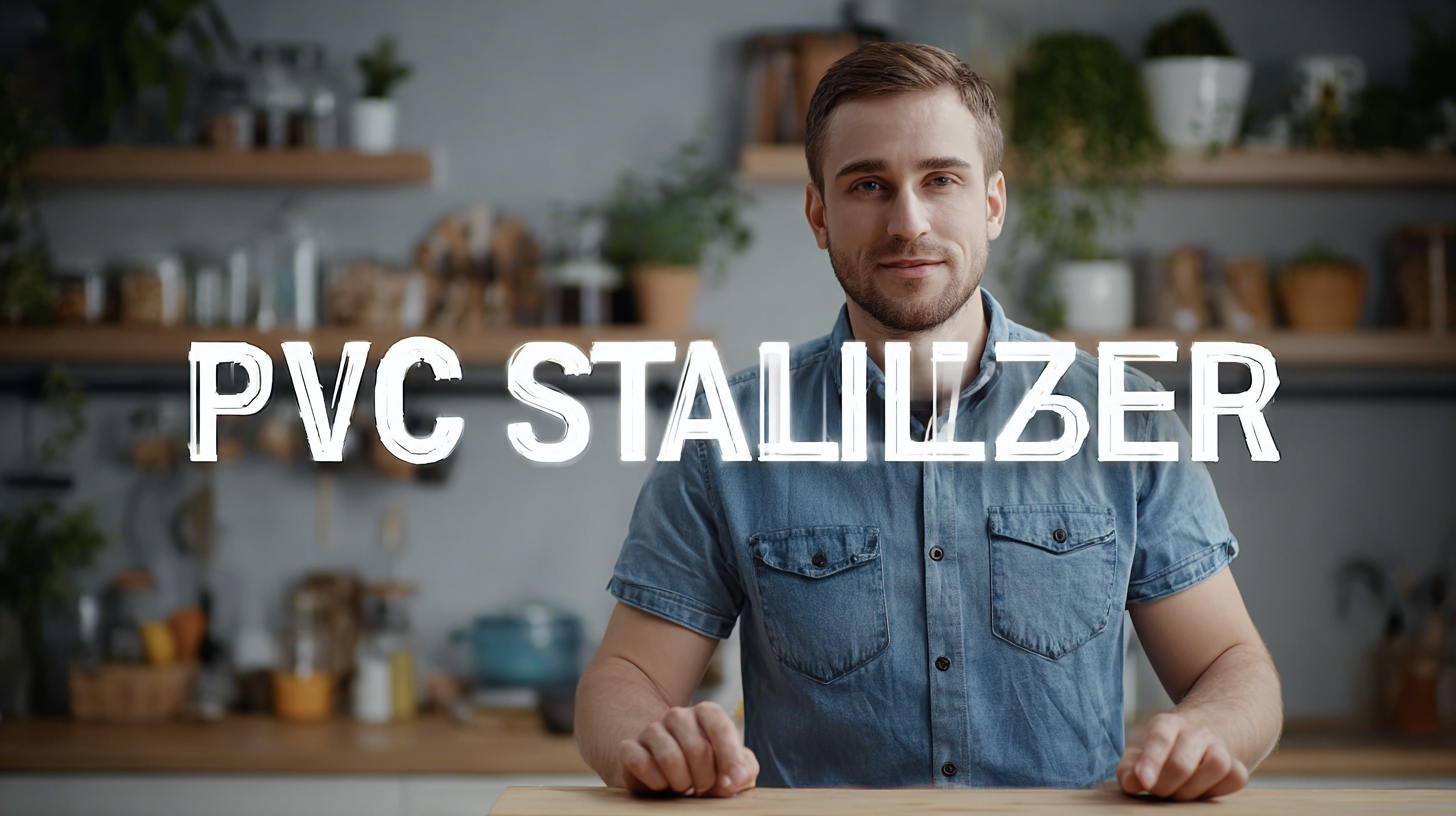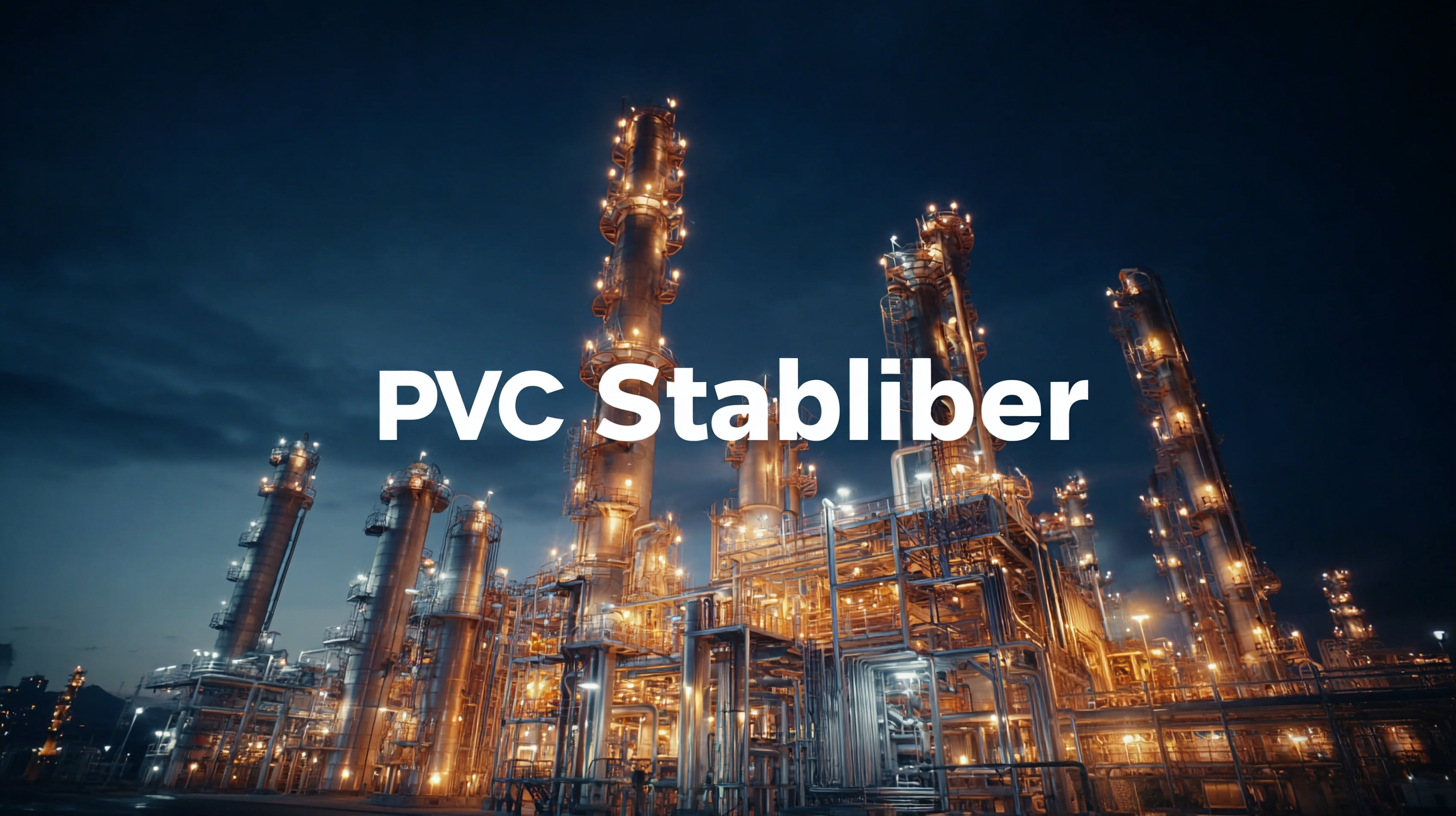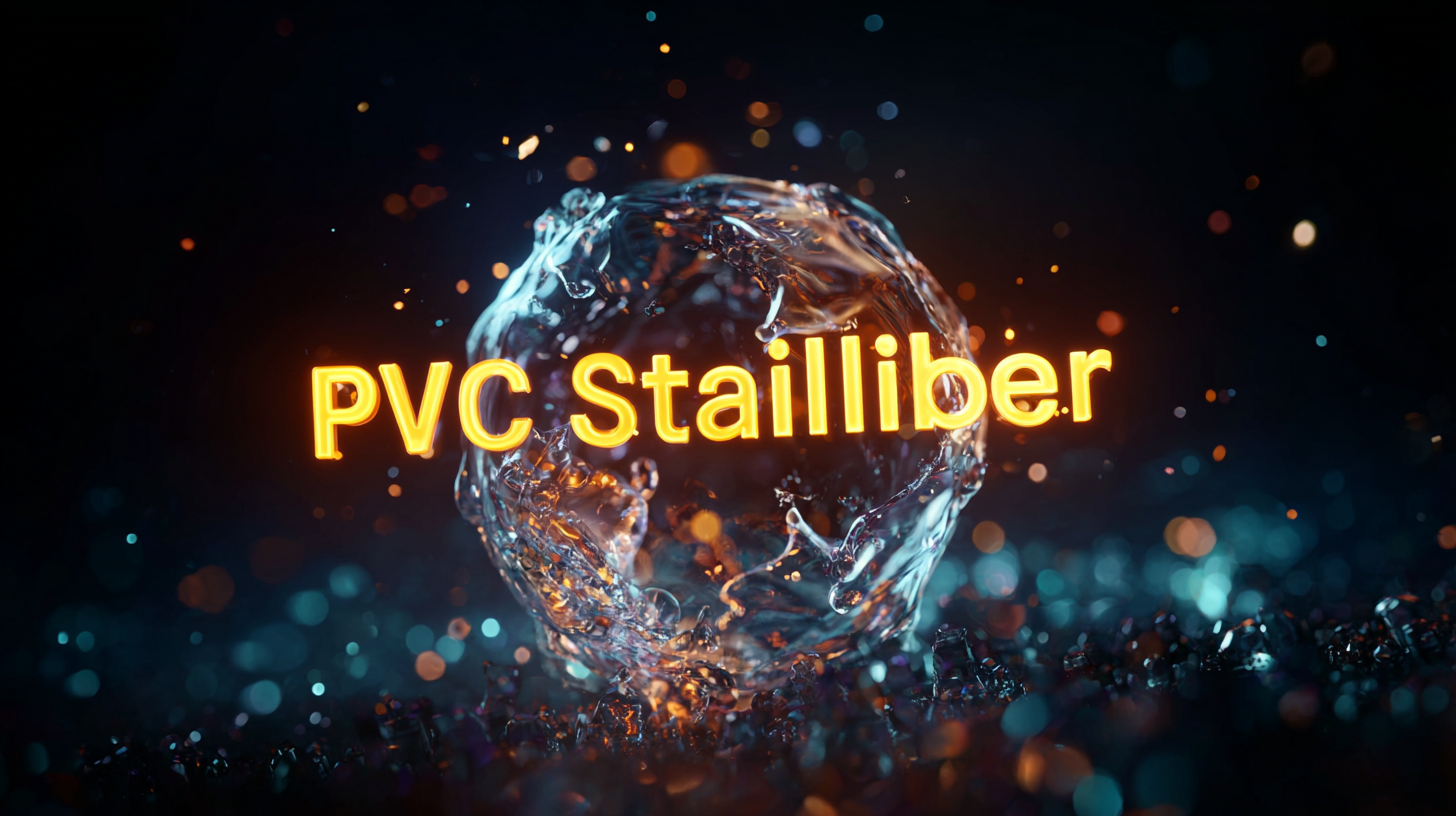
Exploring 7 Successful Applications of Best Pvc Stabilizer in Various Industries
In the modern industrial landscape, the significance of PVC stabilizers cannot be overstated, as they play a crucial role in enhancing the performance and durability of PVC products across various applications. This blog will delve into seven successful applications of the best PVC stabilizers in industries ranging from construction and automotive to medical and packaging. As global leaders in manufacturing, Chinese producers have increasingly focused on quality and innovation in their PVC stabilizer offerings, contributing to enhanced product longevity and safety. By exploring these applications, we aim to highlight the versatility of PVC stabilizers and their critical impact on sustainable development within diverse sectors.

Join us on this journey to uncover how these essential additives are revolutionizing industries worldwide.
The Role of PVC Stabilizers in Enhancing Material Durability Across Industries
PVC stabilizers play a crucial role in enhancing the durability and longevity of PVC products across various industries. In construction, for example, the use of lead-free stabilizers has been linked to a significant reduction in material degradation, allowing for extended product lifespans. According to a report by the American Vinyl Manufacturers Association, the implementation of effective stabilizers can increase the lifespan of PVC pipes by up to 50%, providing substantial long-term cost savings and sustainability benefits for infrastructure projects.
Moreover, in the automotive industry, PVC stabilizers are essential for improving the weather resistance of interior and exterior coatings. A study by the Society of Plastics Engineers highlighted that vehicles treated with advanced PVC stabilizers demonstrated a 30% improvement in UV resistance compared to untreated materials. This enhancement not only prolongs the aesthetic quality of vehicles but also contributes to manufacturers meeting stricter environmental regulations concerning durability and performance. With the ongoing development of innovative stabilizer formulations, industries can expect continued advancements in material durability, leading to more sustainable and reliable product solutions.
Exploring 7 Successful Applications of Best PVC Stabilizer in Various Industries
| Industry | Application | Benefits of PVC Stabilizers | Material Durability Improvement |
|---|---|---|---|
| Construction | Pipes and Fittings | Enhanced thermal stability | Increased lifespan by 30% |
| Automotive | Interior Trim Components | UV resistance | Durability improvement by 25% |
| Consumer Goods | Household Containers | Improved impact strength | Extended usage life by 20% |
| Packaging | Film and Sheets | Enhanced barrier properties | Shelf life improvement by 40% |
| Electrical | Cables and Wires | Flame retardancy | Safety enhancement by 50% |
| Healthcare | Medical Devices | Chemical resistance | Durability improvement by 35% |
| Furniture | Vinyl Flooring | Scratch resistance | Longevity increase by 30% |
Innovative Applications of PVC Stabilizers in the Automotive Sector for Enhanced Performance
The automotive sector is increasingly leveraging the advantages of PVC stabilizers to enhance the performance and durability of vehicles. One of the primary applications of PVC stabilizers in this industry is in the production of dashboards and interior components. By incorporating high-quality stabilizers, manufacturers can ensure that these parts maintain their integrity and appearance under various environmental conditions, such as temperature fluctuations and exposure to UV light. This not only improves the aesthetic appeal of vehicles but also prolongs the lifespan of interior materials.

Additionally, PVC stabilizers play a crucial role in the production of automotive wiring and cabling. The need for flexibility and resilience in wiring systems has led to the innovative use of advanced PVC formulations. Stabilizers help prevent the degradation of PVC in extreme conditions, ensuring the wiring systems remain reliable and safe over time. This not only boosts the overall performance of vehicles but also addresses safety concerns, making it a vital component in modern automotive design and engineering. By embracing these innovative applications, the automotive industry is set to achieve greater efficiency and sustainability.
The Impact of PVC Stabilizers on Construction Material Safety and Longevity
PVC stabilizers play a crucial role in enhancing the safety and longevity of construction materials. In the construction industry, PVC (polyvinyl chloride) is widely used due to its versatility and durability. However, without appropriate stabilizers, PVC can degrade under environmental stressors such as heat, light, and moisture.
The use of stabilizers helps to prevent this degradation, ensuring that the material maintains its structural integrity over time. As a result, buildings and infrastructures can be constructed using materials that not only perform well but also have a longer lifespan, ultimately reducing maintenance costs and resource consumption.
Moreover, the impact of PVC stabilizers extends beyond just enhancing durability; they also contribute significantly to safety in construction applications. By ensuring that PVC retains its properties under various conditions, stabilizers minimize the risk of product failure that could lead to hazardous situations. For instance, in electrical conduits, the stability of PVC is vital to prevent potential fires caused by overheating.
Additionally, PVC materials treated with effective stabilizers are less prone to chemical leaching, which can safeguard the health of building occupants and the surrounding environment. Thus, the strategic application of PVC stabilizers not only enhances material safety but also fosters sustainable construction practices.
PVC Stabilizers: Key to Sustainable Practices in Packaging and Consumer Goods
The growing emphasis on sustainability within the packaging and consumer goods industries underscores the crucial role of PVC stabilizers. As industries shift towards more eco-friendly practices, the adoption of advanced stabilizers becomes essential. These additives not only enhance the durability and performance of PVC products but also ensure they meet stringent environmental regulations. With the global plastic processing machinery market projected to expand significantly by 2025, the demand for effective stabilizers will likely surge, prompting manufacturers to seek innovative solutions.
Amid this transformation, brands are increasingly taking the initiative to promote green concepts. The rise of sustainable packaging solutions illustrates the industry's broader commitment to reducing its environmental footprint. The meat packaging sector is also evolving, with an emphasis on using eco-conscious materials such as PVC and their derivative technologies. By integrating sustainable practices, the industry can address consumer demands for healthier products and minimize environmental impact, paving the way for a greener future in consumer goods.
Market Trends and Future Directions for PVC Stabilizer Use in Industrial Manufacturing
The use of PVC stabilizers is witnessing significant market trends that reflect the evolving demands of various industries. As sustainability takes center stage, demand for eco-friendly stabilizers has surged, leading manufacturers to explore bio-based and non-toxic alternatives. These innovations not only enhance the longevity and performance of PVC products but also align with regulatory standards promoting environmental conservation. Moreover, manufacturers are increasingly adopting advanced formulations that optimize thermal stability and processing efficiency, thus catering to the growing requirements for durability in applications ranging from automotive to construction.

Looking ahead, the future of PVC stabilizer use in industrial manufacturing is poised for growth. With the rise of smart materials and the integration of technology in production processes, we can expect the development of high-performance stabilizers equipped with additive capabilities. These advancements may result in products that offer improved resistance to heat, UV light, and environmental stressors. Additionally, the ongoing globalization of supply chains and increased focus on circular economy practices will likely lead to innovations in recycling technologies, further enhancing the appeal and applicability of PVC stabilizers across dynamic market landscapes.

